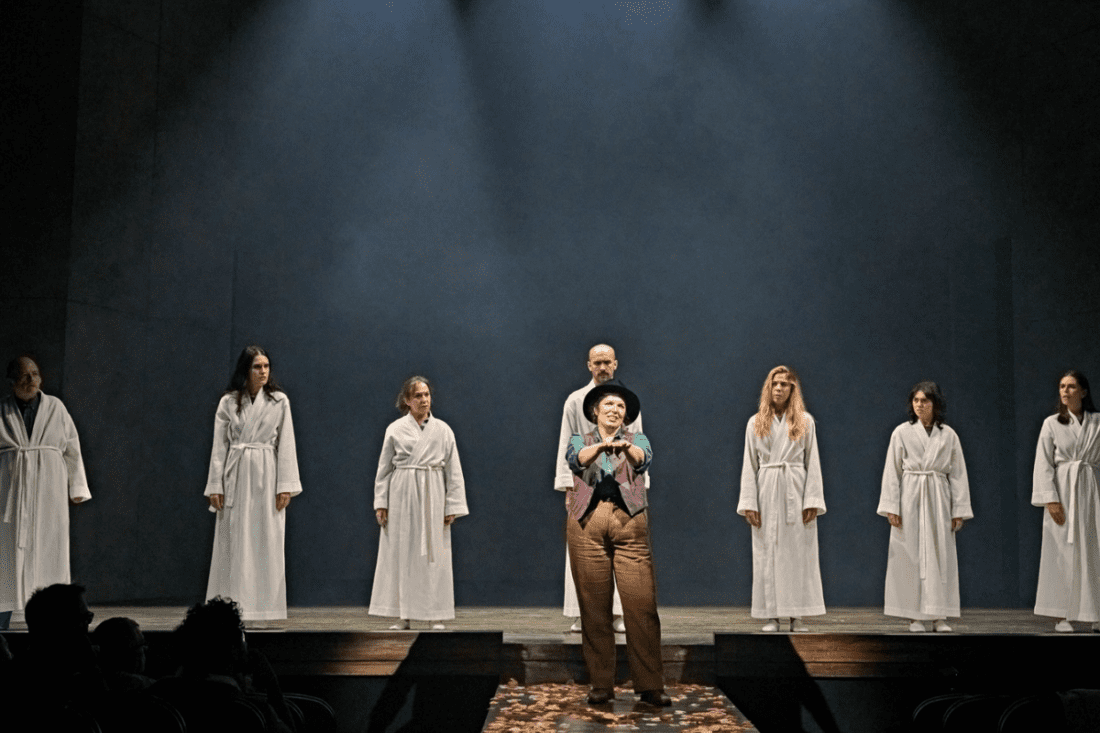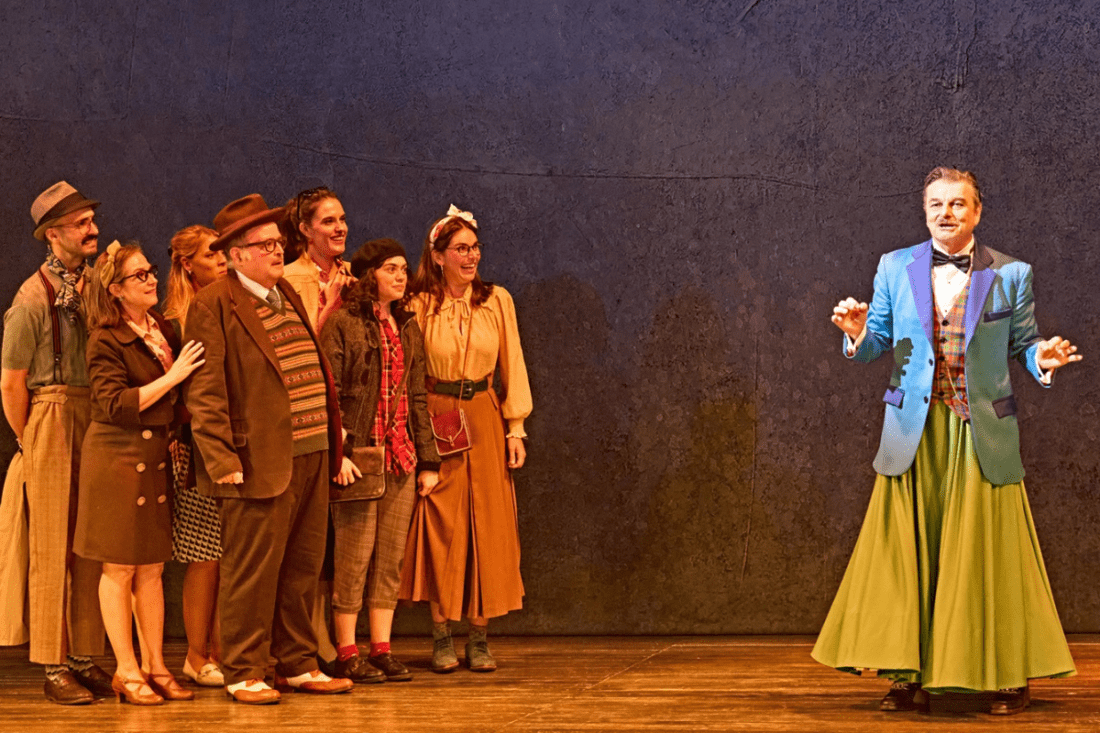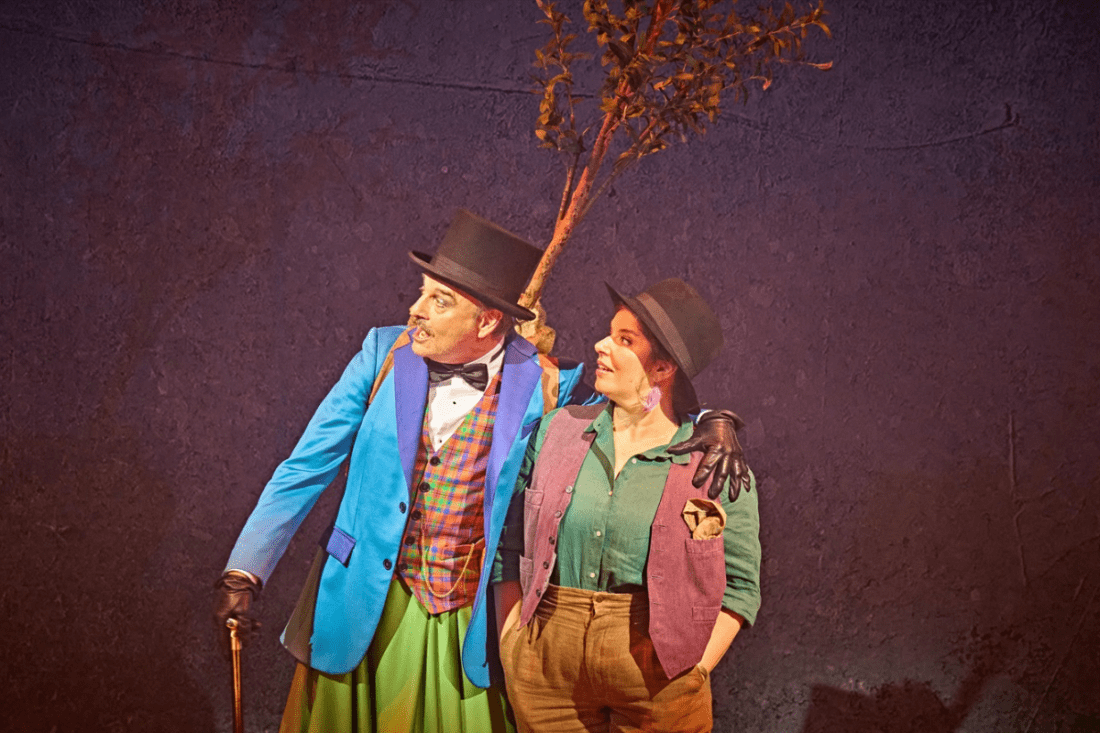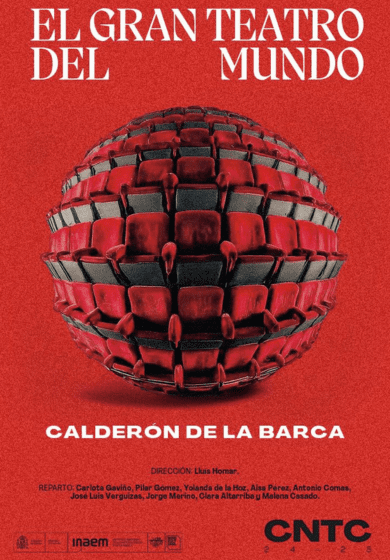
Calderón de la Barca, more alive than ever, at the Romea Theater
Her National Compañía de Teatro Clásico Return to Barcelona with an unpublished piece in its repetition The Gran Teatro del Mundo of Calderón de la Barc. Lluís Homar He assumes the direction of this piece, his latest production as artistic director of the institution. The show will be seen from February 27 to March 16 at the Romea Theater.

The cast is made up of Carlota Gaviño, Pilar Gómez, Yolanda de la Hoz, Aisa Pérez, Antonio Comas, Pablo Chaves, Jorge Merino, Clara Altarriba, Chupi Llorente, Pablo Sánchez and Malena Casadowho will give life to the symbolic characters of this montage full of meaning and emotions.
A theatrical genre between faith and philosophy
Sacramental Autos are a unique theatrical genre in universal literature. These are short works, with a single act, presented by religious and philosophical concepts through symbolic characters. Calderón de la Barca was the greatest exponent of this genre, writing about 80 titles, many of them commissioned by the court and represented at religious festivals. His life was marked by profound changes: from a courtly playwright to a priest in 1651, from which he focused almost exclusively on the writing of these autos.

The work: Life as a stage
The Gran Teatro del Mundo It presents a metaphor for life: God (represented by the author) distributes roles to the different characters, who must fulfill their role without previous rehearsal. These characters symbolize the various social stations and vital attitudes: the king, the rico, the poor, the labrador, the beauty and the discretion, among others.

The work proposes a reflection on morality, divine justice, free will and fate, with a message that transcends its religious conception and still resonates today. According to Brenda Escobedoresponsible for the adaptation of the text, has remained faithful to the original work: “I like to think that nothing is left over. Calderón knew what he did, and we simply try to do justice in his word. “
Lluís Homar: “Theater is a tool to question our role in the world”
The adaptation and direction have sought a representation that balances the symbolic abstraction of the characters with their human dimension. Pilar Gómezwhich interprets the Labrador, emphasizes the validity of the text: “There are many people who, like my character, ask why they have played the role he plays in life.” For its part, Clear altarribawho assumes the role of the poor man, considers that his figure represents a kind of redemption: “I think many viewers will be able to feel identified with this character, who, in spite of everything, trust in a final justice.”
Also the director, Lluís Homaremphasized the importance of bringing this text to the current stages: “It is an honor to close this stage with a text that reminds us that theater is a tool to question ourselves on our role in the world.”
More information, pictures and entries at:









